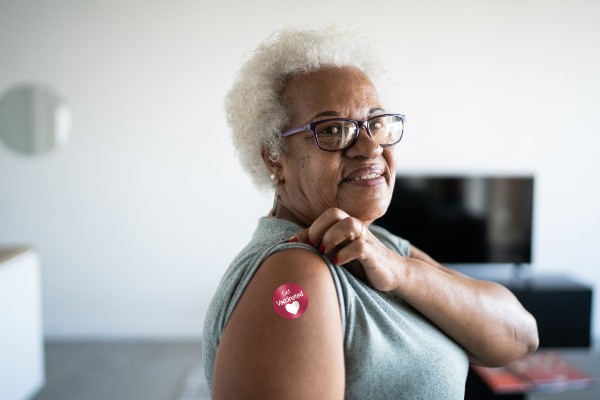When people received their first doses of the COVID-19 vaccine, most didn’t choose between Pfizer-BioNTech, Moderna and Johnson & Johnson (J&J).
Now, as more Americans become eligible for booster shots, does it matter if they get the same type of vaccine as they had for initial doses? Or is it equally safe and effective to get a booster from a different manufacturer – the “mix-and-match”, or heterologous, approach?
As usual with this novel disease, finding a definitive answer remains a work in progress, and the safest strategy is to consult with your healthcare provider.
However, limited data collected to date has led the Centers for Disease Control and Prevention (CDC) to approve mix-and-match boosters for all three types of vaccines. Experts have found no evidence of harm, and in some cases a possible benefit in terms of increased antibody levels.
That guidance offers more flexibility to patients and providers, who may not have a certain vaccine in stock at a particular time. Some people may feel more comfortable asking for the same type of shot; others may want to switch.
What’s most important is that people at higher risk for a severe infection gain greater protection as winter approaches.
Based on current information, here’s what you need to know.
If You Received the Two-Shot Pfizer-BioNTech or Moderna Series (mRNA Vaccinations):
Boosters are recommended at least six months after second shots for anyone 18 and older.
The Pfizer-BioNTech booster has the same formulation and dosage as the original two. Moderna’s contains half the previous dose, which still generates a strong immune response.
According to the latest federal guidance, there is no reason to switch manufacturers – but also no apparent increased risk in doing so. That advice applies only to booster shots, not to the original two-shot series from either company.
If You Who Received the One-Shot J&J Vaccine (DNA/Adenovirus Vaccinations):
The CDC recommends boosters for anyone 18 and older at least two months after their first dose, as the J&J vaccine has been shown to have lower effectiveness over time compared to mRNA formulations.
A small study recently released by the National Institutes of Health, in fact, suggests that following up a first dose of J&J with a Pfizer-BioNTech or Moderna vaccination could prompt greater production of antibodies than getting a second J&J shot, with no negative side effects caused by mixing the two. However, data from more patients is needed.
For Everyone
If possible, talk to a doctor or pharmacist familiar with your health history to determine booster eligibility and potentially aim for a specific manufacturer. Some people may be at a higher risk for extremely rare complications linked to specific vaccines, for example, such as inflammatory heart conditions for mRNA shots or blood clots with the J&J formulation.
But remember that so far, side effects for the vast majority of people have been similar to – or even slightly less than – those after first or second doses. These temporary issues include injection-site pain and swelling, fatigue, headache and muscle aches.
Finally, no matter what booster you receive, bring your COVID-19 vaccination card to that appointment to update your records.



